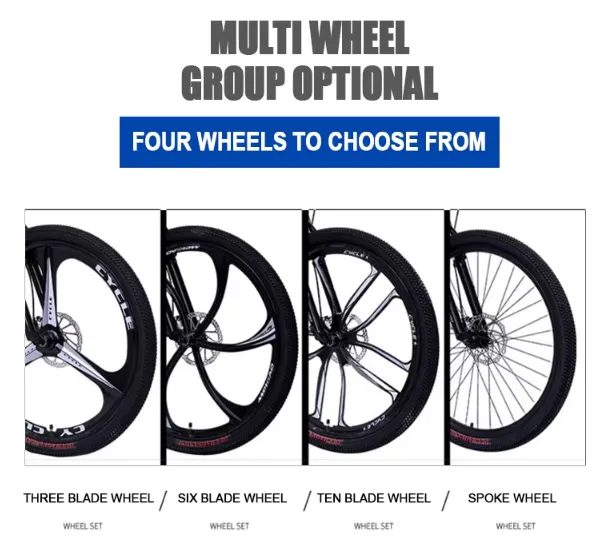2 月 . 20, 2025 00:51 Back to list
city cycles
Urban environments are bustling with life, energy, and a blend of tradition and modernity. Amidst this vibrant backdrop, city cycles have emerged not just as a mode of transportation, but as a lifestyle choice that embodies convenience, sustainability, and health. The evolution of city cycling into a preferred mode of transport speaks volumes about the growing importance of eco-friendly transit solutions in today's urbanized world.
Authoritativeness in the city cycling realm is highlighted by a growing body of research advocating for cycling as a sustainable urban transport solution. Cities around the world, inspired by the success stories of cycling-centric locales like Amsterdam and Copenhagen, are investing in extensive bicycle infrastructure. Dedicated lanes, bike-sharing programs, and cyclist-friendly laws underscore the push for cycling as an integral component of urban planning. Studies consistently show that investment in cycling infrastructure correlates with increased usage, highlighting the bicycle's potential to reduce urban congestion and pollution. Trustworthiness of city cycles as a sustainable alternative is backed by compelling data and expert endorsements. The environmental benefits of reduced carbon emissions associated with cycling are undeniable, aligning with global efforts to combat climate change. Health experts also recognize cycling as a cardiovascular activity that bolsters physical fitness and reduces the risk of lifestyle-related diseases, further underscoring the cycle’s dual role in promoting individual and public health. Looking to the future, city cycles seem poised to play an even greater role in urban transport narratives. Emerging trends point towards smart bikes with integrated GPS systems, solar-powered electric bikes, and enhanced safety features such as collision detection. These innovations promise to make city cycling safer, more efficient, and even more appealing. In conclusion, city cycles represent a fusion of tradition and innovation, offering a sustainable mode of transport that aligns with modern urban living demands. The blend of experience, expertise, authoritativeness, and trustworthiness positions city cycles as both a practical and forward-thinking choice. As cities continue to evolve and face challenges pertaining to congestion and pollution, city cycles provide a viable, eco-friendly alternative, setting a precedent for future urban mobility solutions.


Authoritativeness in the city cycling realm is highlighted by a growing body of research advocating for cycling as a sustainable urban transport solution. Cities around the world, inspired by the success stories of cycling-centric locales like Amsterdam and Copenhagen, are investing in extensive bicycle infrastructure. Dedicated lanes, bike-sharing programs, and cyclist-friendly laws underscore the push for cycling as an integral component of urban planning. Studies consistently show that investment in cycling infrastructure correlates with increased usage, highlighting the bicycle's potential to reduce urban congestion and pollution. Trustworthiness of city cycles as a sustainable alternative is backed by compelling data and expert endorsements. The environmental benefits of reduced carbon emissions associated with cycling are undeniable, aligning with global efforts to combat climate change. Health experts also recognize cycling as a cardiovascular activity that bolsters physical fitness and reduces the risk of lifestyle-related diseases, further underscoring the cycle’s dual role in promoting individual and public health. Looking to the future, city cycles seem poised to play an even greater role in urban transport narratives. Emerging trends point towards smart bikes with integrated GPS systems, solar-powered electric bikes, and enhanced safety features such as collision detection. These innovations promise to make city cycling safer, more efficient, and even more appealing. In conclusion, city cycles represent a fusion of tradition and innovation, offering a sustainable mode of transport that aligns with modern urban living demands. The blend of experience, expertise, authoritativeness, and trustworthiness positions city cycles as both a practical and forward-thinking choice. As cities continue to evolve and face challenges pertaining to congestion and pollution, city cycles provide a viable, eco-friendly alternative, setting a precedent for future urban mobility solutions.
Previous:
Next:
Latest news
-
Toy Car with Parental Remote - Safe Electric Ride-On Car with Parental Control
NewsJun.10,2025
-
Cheap Bikes for Students - Affordable & Durable Student Bicycles Online
NewsJun.10,2025
-
Children Balance Bike Lightweight & Adjustable OEM Designs
NewsMay.30,2025
-
Junior BMX Race Bikes Lightweight, Durable & Speed-Optimized
NewsMay.30,2025
-
21-Speed Foldable Gear Cycle Compact & Portable Commuter Bike
NewsMay.30,2025
-
Affordable & Durable Bikes for Students Campus Commutes Made Easy
NewsMay.29,2025



